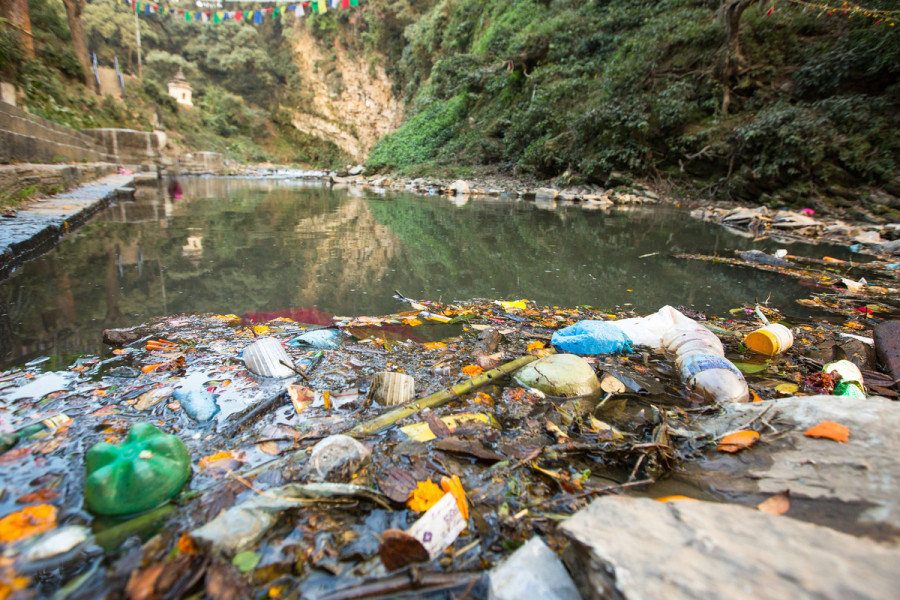We need religious leaders also to push the climate change agenda.

In Buddhist monasteries during ceremonies, it is not difficult to spot the thousands of packets of packaged foods that are offered to the monasteries and monks. During alms-giving ceremonies, when devotees are offering packets of biscuits, instant noodles and other packaged food, I have questioned religious leaders why they do not tell their devotees to not indulge in these practices. Yes, it is convenient for devotees to make these offerings, but they also need to learn that they are doing more harm than good. Each one thinks it is just me and a few packets; but when thousands of devotees do that, they are creating a situation of excessive waste. When I was ordained as a temporary monk, I did not know what to do with the hundreds of packets of biscuits and instant noodles that came as my share.
As people in Glasgow talk about climate change at the United Nations Climate Change Conference (COP26), and world leaders meet and rant, we also need to introspect why the implementation of agreements from decades past have been difficult. It stems from lots of behavioural issues that we do not want to talk about or change.
Consumption waste
The next time there is a religious function, just observe what is going on and what sort of wasteful consumption can be curtailed. Our religion and culture suggest that opulence is doing more dharma. So, we land up consuming more and spending more than is required. With economic prosperity, of course, the number of days of religious functions is expanding, and so is consumption. There is more waste at such functions than ever before. In Dubai, there are campaigns that have started to reduce food waste during Ramadan, which, as a festival of austerity and fasting, produces the biggest food waste as hotels and houses start to serve endless varieties of food that never gets eaten. In Nepal, in recent years, Teej, a fasting ritual for Hindu women in certain castes and communities, has become widespread and pushed consumption along with food waste.
Our culture has been about the demonstration of opulence as a matter of social pride and arrival. At family functions, we used to finish our plates as trained in our childhood without a morsel of food left. Religion has created unnecessary constructions. I have been continuously campaigning for reforming religious institutions amongst the Theravada Buddhist community in Nepal. The country is dotted with dilapidated religious structures of religious leaders who are dead and gone. In Kathmandu Valley itself, there are so many Tibetan Buddhist monasteries that have sprung up in the past 50 years. Every hill, if not covered by a view tower, is covered by mammoth monasteries. In my interactions with the monks, I ask them how right it is to keep building structures to teach the teachings of the Buddha who actually teaches about detachment from the material world, frugality and conscientious consumption.
Need for a global effort
The governments can do little in combating climate change if it does not have support from their citizens and certain age-old traditions and beliefs are not recalibrated when it comes to reducing consumption and construction in the name of religion and culture. In Southeast Asian Buddhist countries, many studies are emerging to highlight such issues and the need to tackle them. In Thailand, brands use religion to push consumption of luxury goods that results in conspicuous consumption. A strong government in India is encouraging Hindu temples to go global, and huge Hindu temples are coming up around the world. And it seems there is never a dearth of funding for building colossal structures that could have gone into building much-needed schools and hospitals. The acceptability of one pursuing a religion in China has increased interest in Buddhism and created an industry that, like other consumer brand products, links one’s religiosity to consumption and materials.
Economic prosperity has a direct correlation with corruption. Studies have shown that an increase in illegal business activities, criminal activities and unethical practices and a decline in moral and social values fuel spending on religious activities. We are seeing this happen in Nepal too!
Twenty years ago, there was a conference in Nepal where leaders from all religions congregated in Kathmandu under the aegis of the World Wildlife Fund for an Alliance of Religions and Conservation (ARC) meeting. They made a pledge on “Sacred Gifts for a Living Planet” where each religion made pledges. “The Gifts are ground-breaking actions pledged by the faiths to combat forest and marine destruction, climate change and a wide range of other environmental issues.” But in the last 20 years, we have seen minimal impact of such pledges.
This year at COP26, there are again voices raised by inter-faith groups and other campaigners to again look at climate change through the lenses of religious leaders. In a world where religion and conservatism are seeing a revival, it could also be an opportunity to revisit and reform, human religious and social practices to push contentious consumption, eliminate opulence and make one’s conduct in protecting the planet an act of compassion and merit-making (earning punya). Yes, Nepal with a nationalist population that shouts at the top of their voices, “Buddha was born in Nepal” has an opportunity to make Nepal, and the Buddha that resides in each one of us, proud.
https://kathmandupost.com/columns/2021/11/01/climate-change-and-religion
